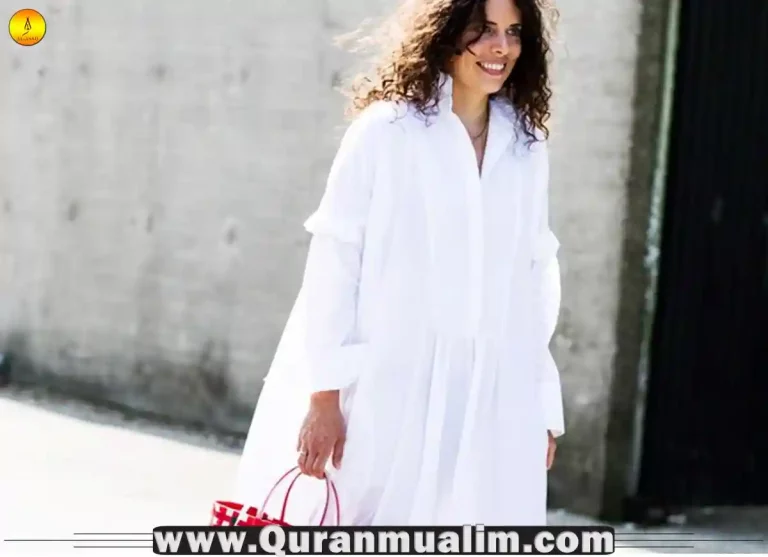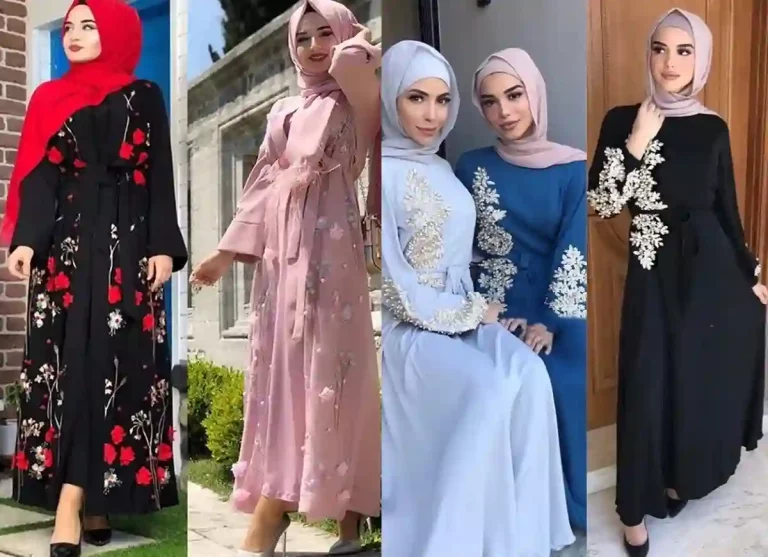WOMEN PROHIBITED FROM WEARING JEWELRY WHICH PRODUCES SOUND
In the same way that a woman’s body excites the sexual desires of men, likewise, listening to a woman’s voice and the sound produced by her jewelry [can] also arouse men’s desires. We previously discussed how a woman should speak to non-maúram men in the explanation of certain ayas of the Qur’an.
عن بنانة مولاة عبدالرحمن ابن حسان الأنصارى عن عائشة رضى الله عنها قالت بينما هى عندها إذ دخل عليها بجارية وعليهاجلاجل يصوتن فقالت لا تدخلنها على إلا أن تقطعوجلاجلها وقالت سمعت رسول الله صلى الله عليه وسلم يقول لا تدخل الملائكة بيتا فيه جرس
Bunóna narrates that once when she was with ‘ô’isha , a woman came with a young girl to visit her. The girl was wearing anklets that jingled. ‘ô’isha told the woman, “Do not bring the girl inside the house until she removes the anklets. I have heard from the Blessed Prophet s that the angels of mercy do not enter the house where bells ring.” ( Abñ Dówñd, Mó Jó’ fi al-Jalójil | Aúmad, 43/174 110 Kanz al-‘Ummól, 16/393)
Abñ ‘Amóma narrates that the Blessed Prophet s said, “Allah dislikes the sound of a jingling anklet as much as He dislikes singing; and Allah will punish the singer and the one who listens to music; and jingling anklets can only be worn by the woman who is away from the Mercy of Allah .”
In Chapter One, which discusses the proofs from the Qur’an, it has been mentioned that women should not strike their feet so hard while walking that non-maúram men hear the jingle of their jewelry. And in the above hadith, such jewelry is declared undesirable and prohibited. Imagine, if it is forbidden for men to hear the jingles of women’s jewelry, then how much more severe is it for a woman to come before non-maúram men or to talk to them? for more :What can anyone touching non- mauram women discuss?
ENTERING SOMEONE’S HOUSE WITHOUT PERMISSION IS FORBIDDEN
![What are the commandant about wearing jewellery? jewellery box, jewelry for men, Type of angel ,angel picture and quranmualim.Learn Quran, Quran translation, Quran mp3,quran explorer, Quran download, Quran translation in Urdu English to Arabic, Al Mualim, Quranmualim, Vislam pictures, Islam symbol, Shia Islam, Sunni Islam, Islam facts],Islam beliefs and practices Islam religion history, Islam guide, prophet Muhammad quotes, prophet Muhammad biography, Prophet Muhammad family tree.](https://www.quranmualim.com/wp-content/uploads/2019/08/What-are-the-commandant-about-wearing-jewelry-C.jpg)
People live and dress freely and openly in their own homes as no strangers are around at that time. This is why the Shari‘a orders that no one should enter anyone else’s home without permission:
عن عطاء بن يسار أن رسول الله صلى الله عليه وسلم سأله رجل فقال يارسول الله أستأذن على أمى فقال نعم قال الرجل إنى معها فى البيت فقال رسول الله صلى الله عليه وسلم إستأذن عليها فقال الرجل إنى خادمها فقال له رسول الله صلى الله عليه وسلم إستأذن عليها أتحب أن تراها عريانة قال لا قال فاستأذن عليها
Aøó ibn Yasór narrates that once someone asked the Blessed Prophet , “O Prophet of Allah u! Do I need to take permission even from my mother before entering?” He replied, “Yes.” The man asked, “O Prophet of Allah ! I live alone with her.” He replied, “Ask for her permission.” The man said, “But, I serve her.” The Blessed Prophet s replied, “Ask your mother for permission. Do you wish to see her in the nude?” The man replied, “No.” He said, “Then ask for her permission.” (al-Muwaøøa’, al-Isti’dhón al-Baihaqī, Isti’dhón al-Mamlñk)
If taking permission from the mother is necessary, then it is even more important to take permission before entering other people’s homes. In fact, taking permission before entering someone’s home is conducive to maintaining the hijab. If anyone could march into another’s home without prior notice, then how will the hijab be established? This is why the aúódõth are clear in this matter [that permission must be taken before entering].
‘Abd Allóh ibn Basar g narrates that the Blessed Prophet said:
“When a person goes to visit someone, he should not stand in front of the door, but to the right or left of it.” (Abñ Dówñd, Kam Marratin Yusallimu al-Rajul)
Obviously, if one stands in front of the door, he can see inside the house when the door is opened and this is prohibited.
In another hadith, the Blessed Prophet s said, “The person who peeks inside the house before being granted permission to come in did not ask for permission.” ( Abñ Dówñd, fi al-Isti’dhón)
The significance of this order is understood in the next hadith. Abñ Huraira narrates that the Blessed Prophet s said, “You have not sinned if someone peeks inside your house without permission and you hit him with a stone that injures his eye.” ( Bukhórõ, Man Akhadha ûaqqahñ)
Anas ibn Mólik narrates that once a bedouin came to visit the Blessed Prophet s and peeked into his house from a hole in the door. When the Blessed Prophet saw him, he picked up an iron rod or a wood stick and thrust it towards the hole to poke it in his eye. When the bedouin saw this he withdrew back. He told him, “If you had not moved back, I would have injured your eye.” ( Nisó’ī, Dhikr ûadīth ‘Amr ibn ûazm fi al-‘Uqñl)
Sahal ibn Sa‘d narrates that once the Blessed Prophet s was in his house combing his hair [with an iron instrument] when someone came and peeked through the hole in the door. The Blessed Prophet s said to him, “Had I known before that you were peeking, I would have struck your eye with it.” The condition of asking for permission before entering someone’s home is so that no one looks inside. ( Muslim, Taúrīm al-Naþr fī Bait Ghairihī)
![What are the commandant about wearing jewellery? jewellery box, jewelry for men, Type of angel ,angel picture and quranmualim.Learn Quran, Quran translation, Quran mp3,quran explorer, Quran download, Quran translation in Urdu English to Arabic, Al Mualim, Quranmualim, Vislam pictures, Islam symbol, Shia Islam, Sunni Islam, Islam facts],Islam beliefs and practices Islam religion history, Islam guide, prophet Muhammad quotes, prophet Muhammad biography, Prophet Muhammad family tree.](https://www.quranmualim.com/wp-content/uploads/2019/08/What-are-the-commandant-about-wearing-jewelry-B.jpg)

![What are the commandant about wearing jewellery? jewellery box, jewelry for men, Type of angel ,angel picture and quranmualim.Learn Quran, Quran translation, Quran mp3,quran explorer, Quran download, Quran translation in Urdu English to Arabic, Al Mualim, Quranmualim, Vislam pictures, Islam symbol, Shia Islam, Sunni Islam, Islam facts],Islam beliefs and practices Islam religion history, Islam guide, prophet Muhammad quotes, prophet Muhammad biography, Prophet Muhammad family tree.](https://www.quranmualim.com/wp-content/uploads/2019/08/What-are-the-commandant-about-wearing-jewelry-A.png)





